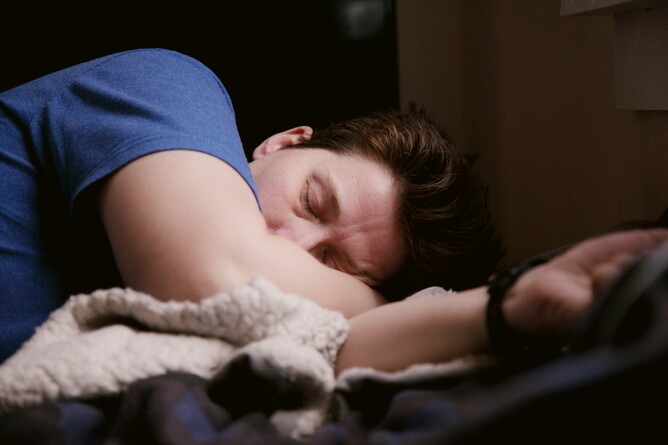The Importance of Sleep for Prostate Cancer Recovery
When navigating prostate cancer recovery and rehab, much of the conversation naturally centres around exercise, nutrition, and medical treatments. However, one vital pillar of health often goes underappreciated: sleep. For men recovering from prostate cancer, achieving consistent, restorative sleep is not just a luxury — it is a crucial component that underpins immune function, emotional resilience, muscle repair, and hormonal balance.
In this article, we explore why sleep deserves a front-row seat in any recovery plan and share practical strategies for improving sleep quality, empowering men to take charge of this essential element of health.
Sleep: The Overlooked Medicine
Healing after prostate cancer treatment demands significant physiological and emotional strength. While exercise builds physical resilience and nutrition fuels the body, sleep acts as the body's natural repair system. During deep sleep phases, the body performs vital tasks — repairing muscles, regulating hormones, clearing toxins from the brain, and supporting the immune system.
For men recovering from surgery, radiation, or hormone therapy, sleep is not optional. It is foundational to recovery outcomes, influencing everything from daily energy levels to long-term resilience.
1. Sleep and Immune Function
A strong immune system is essential during and after prostate cancer treatment. Sleep plays a pivotal role in enhancing immune surveillance — the body's ability to detect and eliminate abnormal cells. Research shows that chronic sleep deprivation can weaken immune defences, making it harder for the body to recover from treatment and defend against illness.
During sleep, the body releases cytokines — proteins that help fight infection and inflammation. Without adequate sleep, cytokine production decreases, leaving the body more vulnerable. Prioritising good sleep supports the immune system in doing its crucial work: healing tissues, fighting infection, and maintaining internal balance.
2. Sleep and Emotional Well-being
The emotional journey after a prostate cancer diagnosis can be overwhelming. Anxiety, mood swings, and depression are common experiences — and sleep disruption often exacerbates them.
Sleep has a profound impact on mental health. A lack of restorative sleep increases emotional reactivity and lowers coping thresholds, making it harder to handle stress and maintain a positive outlook. Deep sleep enhances the brain’s ability to process emotions, consolidate memories, and build resilience against anxiety and depression.
For men in recovery, a good night’s sleep can mean the difference between facing the day with confidence or feeling mentally and emotionally drained.
3. Sleep and Muscle Recovery
Many men engage in exercise as part of their post-treatment recovery. Physical activity improves strength, cardiovascular health, and mental well-being — but exercise alone is not enough. Muscle recovery happens predominantly during sleep, especially during the deep stages known as slow-wave sleep.
During this time, the body releases growth hormones that stimulate tissue repair and muscle growth. Without sufficient quality sleep, muscles struggle to recover fully, leading to fatigue, soreness, and reduced exercise performance over time.
For those rebuilding their strength after treatment, respecting the body’s need for rest is key to maximising the benefits of physical training.
4. Sleep and Hormone Regulation
Prostate cancer recovery often involves hormonal treatments, and even in their absence, hormonal balance remains critical for men’s health. Sleep directly influences the production of several important hormones, including testosterone and cortisol.
Testosterone levels peak during deep sleep. Insufficient sleep can lower testosterone production, impacting energy, mood, libido, and muscle mass — all important facets of recovery and overall vitality. Meanwhile, chronic sleep deprivation elevates cortisol, the stress hormone, which can interfere with immune function, blood sugar regulation, and fat metabolism.
Simply put, protecting sleep helps protect hormonal health — a particularly important focus during prostate cancer recovery.
Practical Strategies for Better Sleep
Understanding the importance of sleep is one thing — achieving it consistently is another. Here are evidence-based, practical tips to support deeper, more restorative sleep:
Establish a Consistent Sleep Schedule: Go to bed and wake up at the same time each day, even on weekends. Consistency reinforces your body's natural circadian rhythms.
Create a Sleep-Friendly Environment: Keep the bedroom cool, dark, and quiet. Invest in comfortable bedding and eliminate sources of artificial light, such as phones or televisions.
Develop a Pre-Sleep Routine: Engage in calming activities before bed — reading, gentle stretching, deep breathing, or listening to soothing music. A regular wind-down routine signals to your body that it’s time to sleep.
Limit Stimulants and Heavy Meals Before Bed: Avoid caffeine, nicotine, and large meals in the evening. These can interfere with the body's ability to fall and stay asleep.
Prioritise Daytime Light Exposure: Natural sunlight exposure during the day helps regulate the sleep-wake cycle. Aim for at least 30 minutes of outdoor light daily.
Manage Stress Effectively: Techniques such as meditation, guided imagery, or progressive muscle relaxation can help reduce stress and prepare the mind for restful sleep.
Exercise — But Not Too Late: Regular physical activity promotes better sleep. However, intense exercise close to bedtime can be stimulating. Aim to complete workouts at least three hours before bed.
Sleep: As Vital as Exercise and Nutrition
At PROST!, we often emphasise the power of movement and good nutrition in building stronger, healthier lives after prostate cancer. Sleep deserves the same emphasis. It is an invisible but critical thread woven through every aspect of recovery and long-term wellness.
For men navigating life after a prostate cancer diagnosis, treating sleep as a core part of their recovery plan — not an afterthought — can make a profound difference. Better sleep means better healing, stronger resilience, and ultimately, a higher quality of life.
Small, consistent changes can lead to big improvements. Start tonight — your body, mind, and spirit will thank you.
